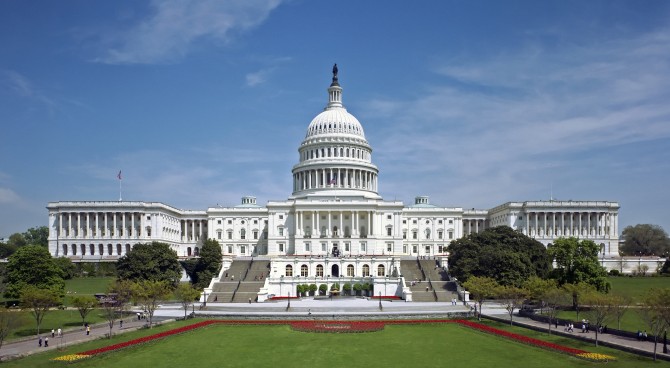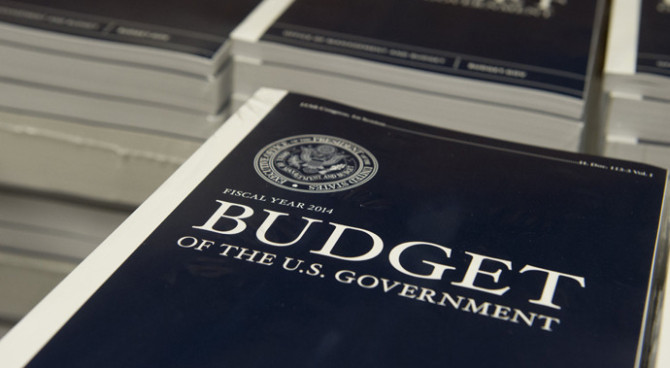The slender majority is the only sentry at the gate. Lawmakers have a duty to protect America’s fisc.
After a disappointing election, a slim House Republican majority will be the only sentry at the gate holding back an administration and Senate intent on taxing, spending, regulating and transforming the foundations of American government.
House Republicans must govern, which requires cobbling together the 218 votes necessary to pass appropriation bills that constrain spending and using the power of the purse to rein in Biden administration abuses of executive, regulatory and antitrust authority.
If united, Republicans can stop any new tax bill, defund any discretionary spending program and conduct broad-ranging investigations. But investigating is a double-edged sword. Unless an investigation of President Biden and his family produces significant findings, it will be portrayed by the media as a Trump-inspired vendetta. If inflation persists and the economy continues to weaken, the specter of a Republican House preoccupied with investigating the administration as stagflation afflicts the nation will be seen as fiddling while Rome burns, a charge that could bring defeat in 2024.
While any new tax proposal will be easily blocked, stopping the spending spree is where the challenge will be monumentally greater. The federal government’s pandemic spending spree has generated a massive bow wave of post-pandemic spending, which if unconstrained will drown out Republican efforts to rebuild defense and make the 2017 tax cuts permanent.
The federal government is operating through mid-December under a continuing resolution that spends $1.76 trillion in fiscal 2023. That is $356 billion, or 25%, more than the pre-pandemic 2020 appropriation of $1.4 trillion. Adding entitlements and mandatory spending, including the Chips Act and the mandatory spending provisions of the so-called Inflation Reduction Act, will increase total 2023 spending to $5.9 trillion, $1.3 trillion above the pre-pandemic level.
Even after adjusting for inflation, annual post-pandemic spending is up half a trillion dollars from the pre-pandemic level. That is twice as much as the estimated cost of extending the 2017 tax cuts. Compared with pre-pandemic 2020 spending levels, inflation-adjusted nondefense discretionary spending for 2023 grows by $206 billion, while real defense spending shrinks by $33 billion. Realizing the Republican goal of spending parity between defense and nondefense discretionary programs will require wholesale budget changes.
In May, the Congressional Budget Office estimated that government spending in 2023 would be 22.5% of gross domestic product, down from its estimate of 23.8% of GDP for 2022 spending. Actual 2022 spending hit 25.1% of GDP. The CBO projections didn’t include the billions of dollars in spending in the Inflation Reduction Act or the roughly $150 billion Democrats are expected to seek for an omnibus spending bill in the lame-duck session. Defense spending will be only 3% of GDP in 2023 before falling to a postwar low of 2.7% in 2032.
The age-old excuse for not controlling discretionary spending is that entitlements make up 62% of the total budget, and if you don’t change entitlements, you don’t deal with the spending problem. But nondefense discretionary spending has been bloated by the pandemic, and much of what had been discretionary spending is now mandatory because of legislative action by Democrats in Congress.
Since the 1983 bipartisan Social Security reform, no major entitlement reform has occurred that wasn’t bipartisan. Democrats, including Speaker Tip O’Neill, supported entitlement reform only when discretionary spending was significantly restrained. Not only does restraining discretionary spending generate the political credibility necessary to reform entitlements, it pressures both parties into supporting entitlement reform. By winning a majority in the House, Republicans took up the mantle of governing. They can’t curtail spending simply by voting against appropriation bills. The majority party must pass a funding bill or the government will shut down. Shutting the government down will only lead to being beaten into submission and allowing the spending spree to continue with bipartisan support.
If 218 Republicans can agree on spending restraints and priorities, they can defund the Internal Revenue Service inquisition and woke government, fund defense and border security, and restrict the executive excesses that hamstring the economy and drive up prices. Protesting is easy. Governing is hard, involving compromise. But if the new Republican majority can pass its own funding bills, choosing restraints on spending and appropriation riders that have broad public support, they can define the differences between the parties and win the spending debate. If the Senate and White House refuse to negotiate, they will be shutting the government down.
If Republicans can’t contain the explosion of social spending, continued fiscal stimulus will force the Federal Reserve to implement monetary policy that will squeeze out more private investment. That will lower growth in productivity and wages and increase the national debt. While focusing on stopping inflation, funding defense and making the tax cuts permanent, Republican leaders must negotiate with each Republican member to find acceptable riders and spending changes. The process won’t be pretty or pleasant, but it is what governing in a free society requires.
Mr. Gramm is a former chairman of the Senate Banking Committee and a nonresident senior fellow at American Enterprise Institute. Mr. Solon is a partner of US Policy Metrics.



